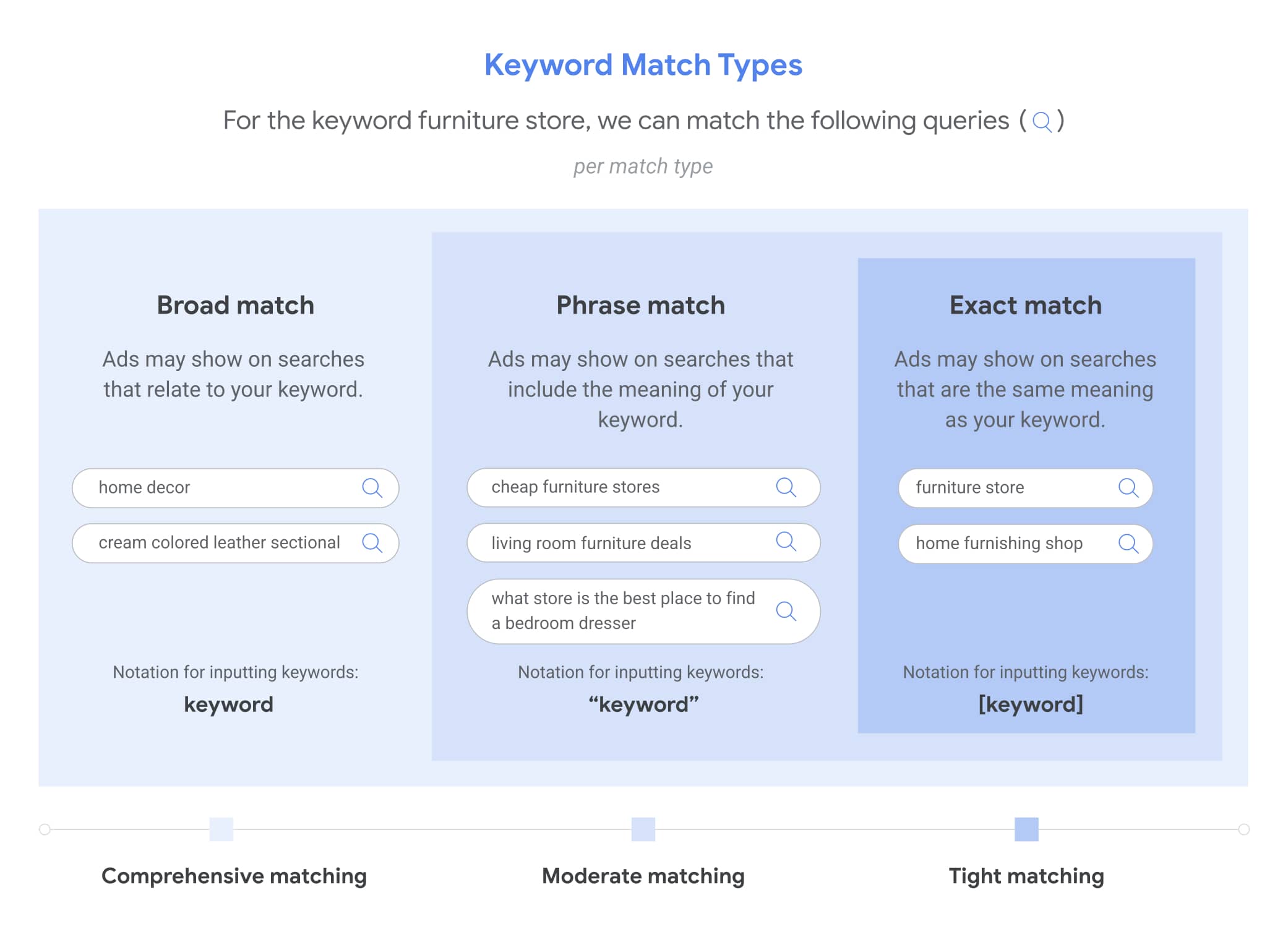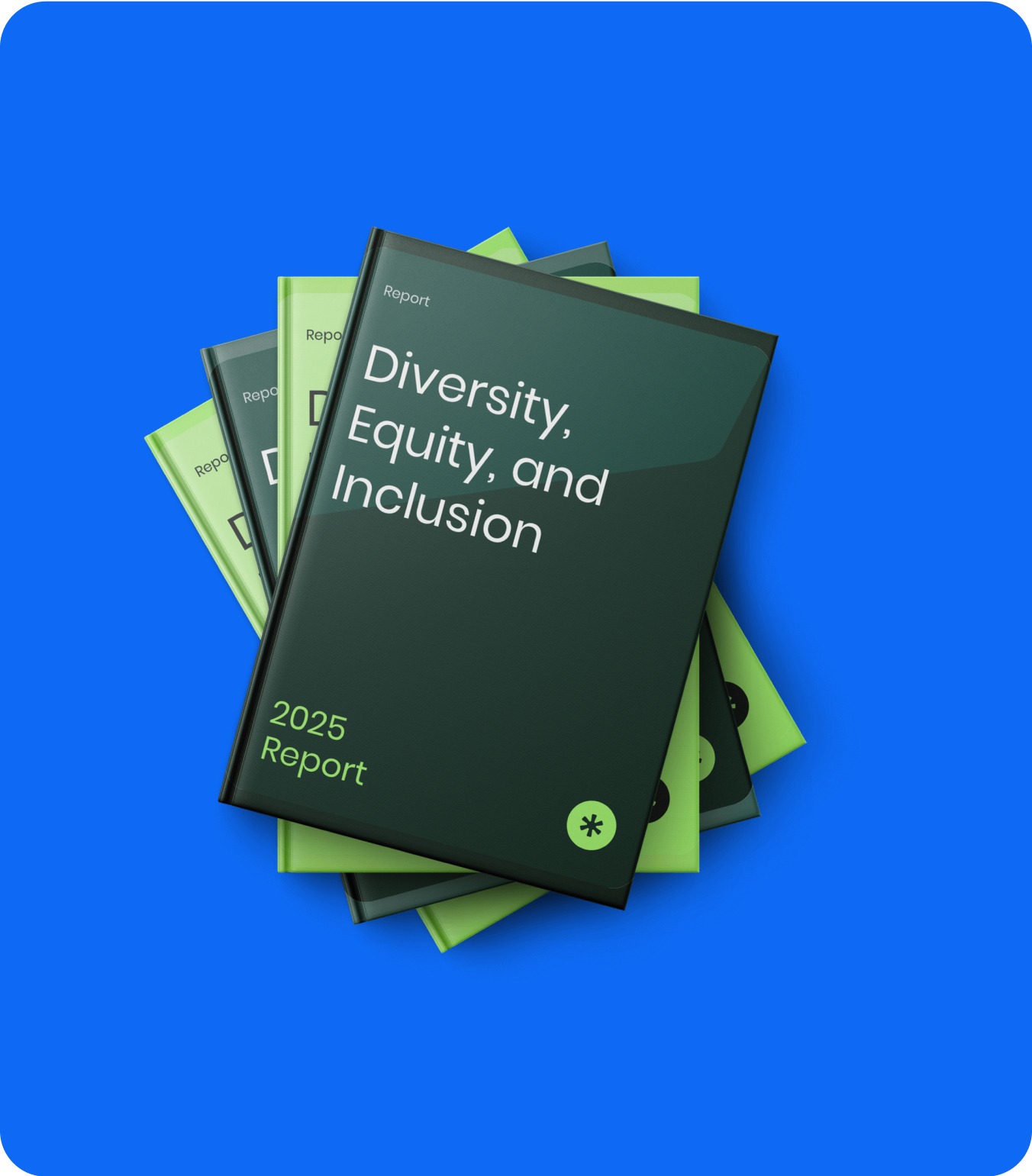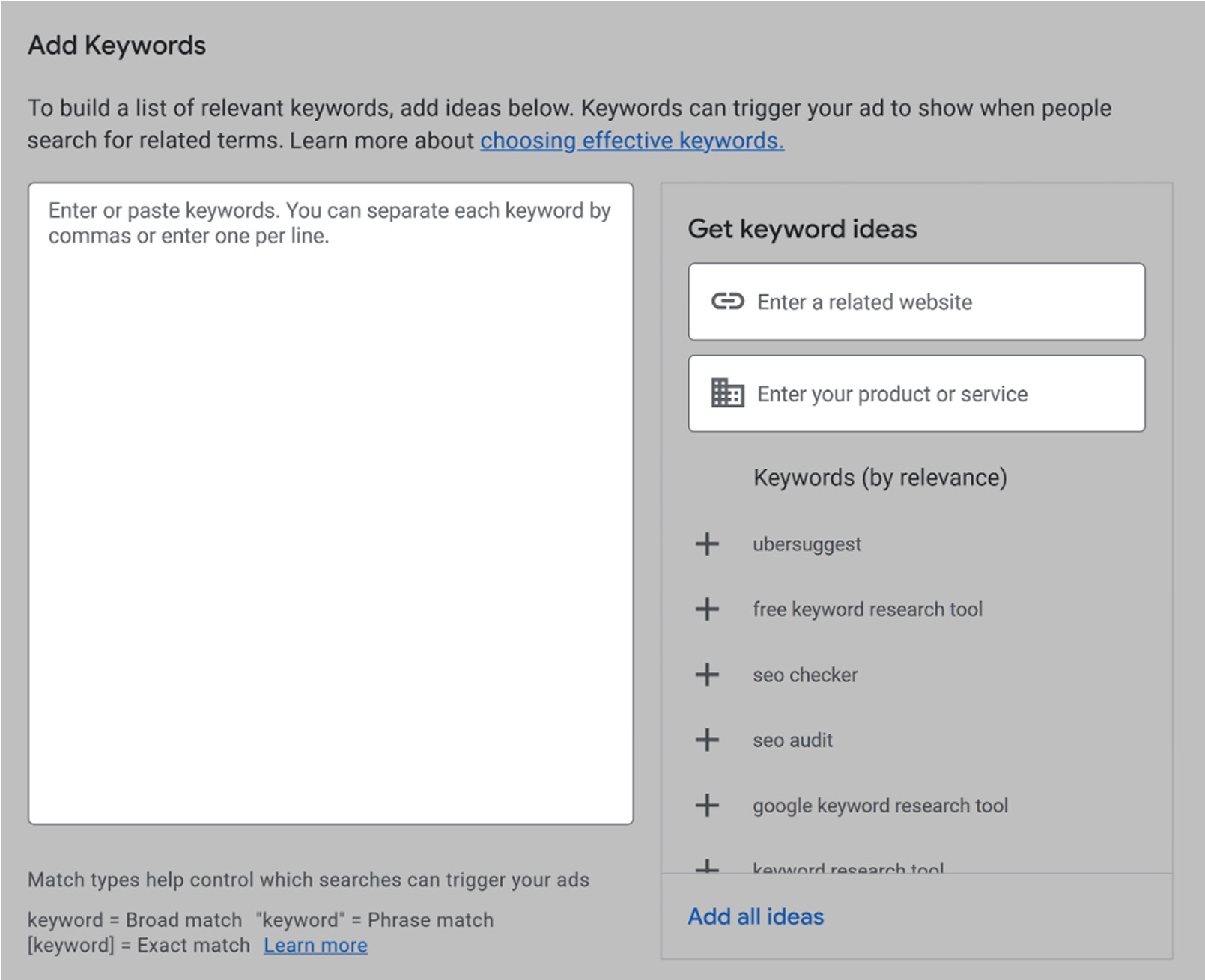Zakaj broad
targeting deluje (če veš, kaj delaš)
- Kategorija Spletno oglaševanje
- Ključne besede Google Ads, Keywords
ON THIS PAGE
UVOD
Meta oglaševanje se hitro razvija. Kar je delovalo pred
dvema letoma, danes pogosto ne deluje več.
In the digital marketing space, the debate over broad match keywords continues to divide opinions among agency folk and business owners we’ve spoken to. While some praise their versatility, others warn of their potential to drain advertising dollars.
In this article, we’ll break down the truth about Broad Match keywords in Google ads and we’ll delve into why relying solely on broad match keywords might not be the smartest move. Unless you’ve exhausted other match types, have a hefty budget, operate in a niche sector, or just want to flush your money down the loo because you’re far too loaded.

WHAT IS BROAD?
What is broad match in Google Search Ads?
Broad match is a keyword match type in Google Ads that helps your ads appear in a wider variety of searches related to your chosen keywords.
Unlike exact match or phrase match, which target specific phrases or close variations, broad match is designed to capture a wide range of searches that might include synonyms, related terms, or other variations that Google’s algorithms think are relevant.
This allows your ad to reach more people who may be interested in your product or service, even if they aren’t typing in the exact words you targeted.

MATCH TYPES
Exact Match
Your ad shows only when someone types in the exact keyword or close variations. For example, bidding on “heating repairs” in exact match would only display your ad for searches very close to that original keyword.
Phrase Match
Your ad shows when the search term includes your chosen keyword phrase but can also have other words before or after. So, “heating repairs” in phrase match might show for “emergency heating repairs” or “new heater near me,” but not for synonyms like “HVAC.”
Broad Match
Your ad shows for searches that relate to the keyword in a broader sense, including synonyms and other related terms. It’s less precise, but it captures a much wider audience.
Potrebujete digitalno strategijo, s katero boste končno dosegli zadane cilje?

MATCH TYPES
Exact Match
Your ad shows only when someone types in the exact keyword or close variations. For example, bidding on “heating repairs” in exact match would only display your ad for searches very close to that original keyword.
Phrase Match
Your ad shows when the search term includes your chosen keyword phrase but can also have other words before or after. So, “heating repairs” in phrase match might show for “emergency heating repairs” or “new heater near me,” but not for synonyms like “HVAC.”
Broad Match
Your ad shows for searches that relate to the keyword in a broader sense, including synonyms and other related terms. It’s less precise, but it captures a much wider audience.
MATCH TYPES EXPLAINED
Broad match
pendant lights
Searches that relate to your keyword
- kitchen island lighting
- modern hanging lamps
- ceiling fixtures
Phrase match
“pendant lights”
Searches that include the meaning of your keyword
- bronze pendant lights
- pendant lights for dining room
- affordable pendant lights
Exact match
“pendant lights”
“pendant lights”
- pendant lights
- hanging pendant lights
CURRENT UPDATES
What is changing with
Google Ads and Broad Match?
Broad match is becoming more important because Google is using advanced AI and machine learning to understand the intent behind searches better. Instead of relying solely on specific keywords, Google can now interpret what people might want, even if they use different language.
This approach can help small businesses and affiliate marketers reach more potential customers without manually selecting every possible keyword variation. In the following sections, we’ll explore what these changes mean for smaller teams and how you can adapt to make the most of broad match.
Google’s latest push toward broad match is part of a larger strategy to make advertising more intuitive and user-focused. With advances in artificial intelligence and machine learning, Google aims to interpret what users mean when they search for something, even if the exact keyword or phrase isn’t used.
WHAT SHOULD YOU DO
This means less reliance on Exact
Match Keywords going forward
Historically, many advertisers used exact and phrase-match keywords to pinpoint specific search terms and avoid irrelevant traffic. This is especially useful for smaller teams with limited resources, as specific keywords cost less than high-value phrases.
For small businesses and affiliate marketers working with limited resources, Google’s push toward broad-match keywords has benefits and challenges.
Broad match may simplify some aspects of keyword management, but it also introduces new dynamics that smaller teams must navigate carefully. Let’s look at what this shift means for your day-to-day advertising strategy.
However, exact match limits ad visibility to only those close variations of a keyword, which can be restrictive in today’s competitive online environment. Google’s emphasis on broad match reflects a shift from these precise targeting methods, encouraging advertisers to think more about user intent than specific phrases.

WHAT CAN GO WRONG
Risk of irrelevant trafic and
higher ad costs
However, broad match can sometimes lead to your ads appearing on searches that aren’t entirely relevant to your business.
For example, if you’re targeting “home improvement services” with a broad match, your ad might show up for searches like “DIY home repair tips,” which may not align with the services you’re actually offering. This can result in clicks from people who aren’t likely to convert, which could quickly drain a smaller budget.
This can be a serious concern for small businesses and affiliate marketers. Higher volumes of irrelevant traffic mean that ad budgets might not stretch as far, requiring careful monitoring to avoid overspending on clicks that don’t bring value.
Iščete zanesljivo in strokovno digitalno agencijo, ki se vam bo dejansko posvetila?

LESS CONTROL
Less control and more dependence
on Google's Algorithms
With broad match, advertisers give up some control over which specific search terms trigger their ads, relying more on Google’s AI to make those decisions. For small teams, this means there’s a need to trust Google’s algorithms to show ads to relevant audiences.
While Google’s machine learning is advanced, it doesn’t always get it right, especially if your target audience has niche needs or specific buying behavior. The key to managing this lack of control is to focus on the tools that can refine your targeting within broad match, such as negative keywords, smart bidding strategies, and audience targeting.

LESS CONTROL
Less control and more dependence
on Google's Algorithms
With broad match, advertisers give up some control over which specific search terms trigger their ads, relying more on Google’s AI to make those decisions. For small teams, this means there’s a need to trust Google’s algorithms to show ads to relevant audiences.
While Google’s machine learning is advanced, it doesn’t always get it right, especially if your target audience has niche needs or specific buying behavior. The key to managing this lack of control is to focus on the tools that can refine your targeting within broad match, such as negative keywords, smart bidding strategies, and audience targeting.
Verjetno vas
zanima tudi:

